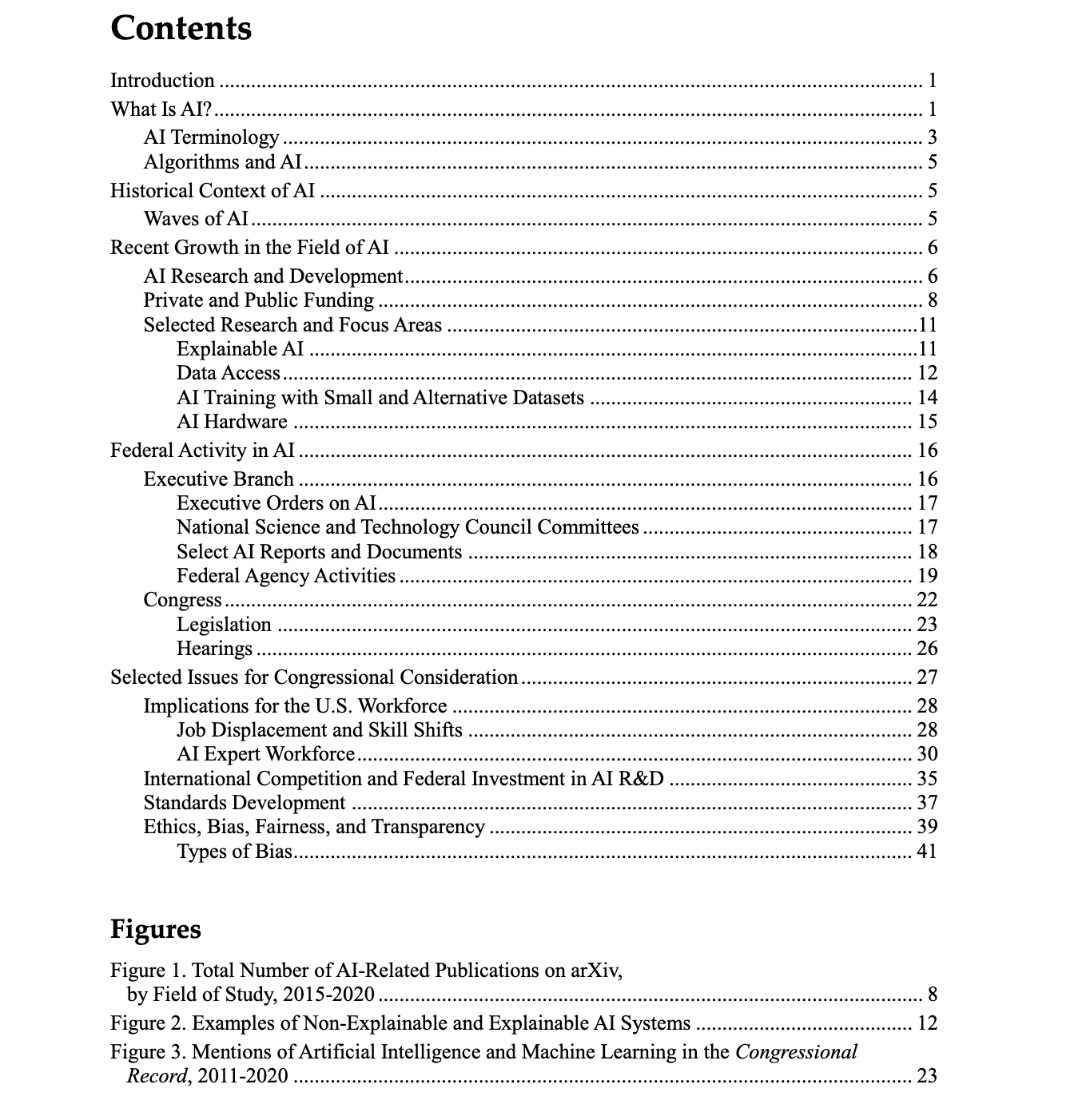“Artificial Intelligence: Background, Selected Issues, and Policy Considerations” (New Report from Congressional Research Service)
From the Report (R46795):
The field of artificial intelligence (AI)—a term first used in the 1950s—has gone through multiple waves of advancement over the subsequent decades. Today, AI can broadly be thought of as computerized systems that work and react in ways commonly thought to require intelligence,such as the ability to learn, solve problems, and achieve goals under uncertain and varying conditions. The field encompasses a range of methodologies and application areas, including machine learning (ML), natural language processing, and robotics. In the past decade or so, increased computing power, the accumulation of big data, and advances in AI techniques have led to rapid growth in AI research and applications. Given these developments and the increasing application of AI technologies across economic sectors, stakeholders from academia, industry, and civil society have called for the federal government to become more knowledgeable about AI technologies and more proactive in considering public policies around their use.
[Clip]
AI holds potential benefits and opportunities, but also challenges and pitfalls. For example, AI technologies can accelerate and provide insights into data processing; augment human decision making; optimize performance for complex tasks and systems; and improve safety for people in dangerous occupations. On the other hand, AI systems may perpetuate or amplify bias, may not yet be fully able to explain their decision making, and often depend on vast datasets that are not widely accessible to facilitate research and development (R&D).
Further, stakeholders have questioned the adequacy of human capital in both the public and private sectors to develop and work with AI, as well as the adequacy of current laws and regulations for dealing with societal and ethical issues that may arise. Together, such challenges can lead to an inability to fully assess and understand the operations and outputs of AI systems—sometimes referred to as the “black box” problem.Because of these questions and concerns, some stakeholders have advocated for slowing the pace of AI development and use until more research, policymaking, and preparation can occur. Others have countered that AI will make lives safer, healthier, and more productive, so the federal government should not attempt to slow it, but rather should give broad support to AI technologies and increase federal AI funding.
Direct to Full Text Report (R46795)
47 pages; PDF
Filed under: Data Files, Funding, News
About Gary Price
Gary Price (gprice@gmail.com) is a librarian, writer, consultant, and frequent conference speaker based in the Washington D.C. metro area. He earned his MLIS degree from Wayne State University in Detroit. Price has won several awards including the SLA Innovations in Technology Award and Alumnus of the Year from the Wayne St. University Library and Information Science Program. From 2006-2009 he was Director of Online Information Services at Ask.com.



